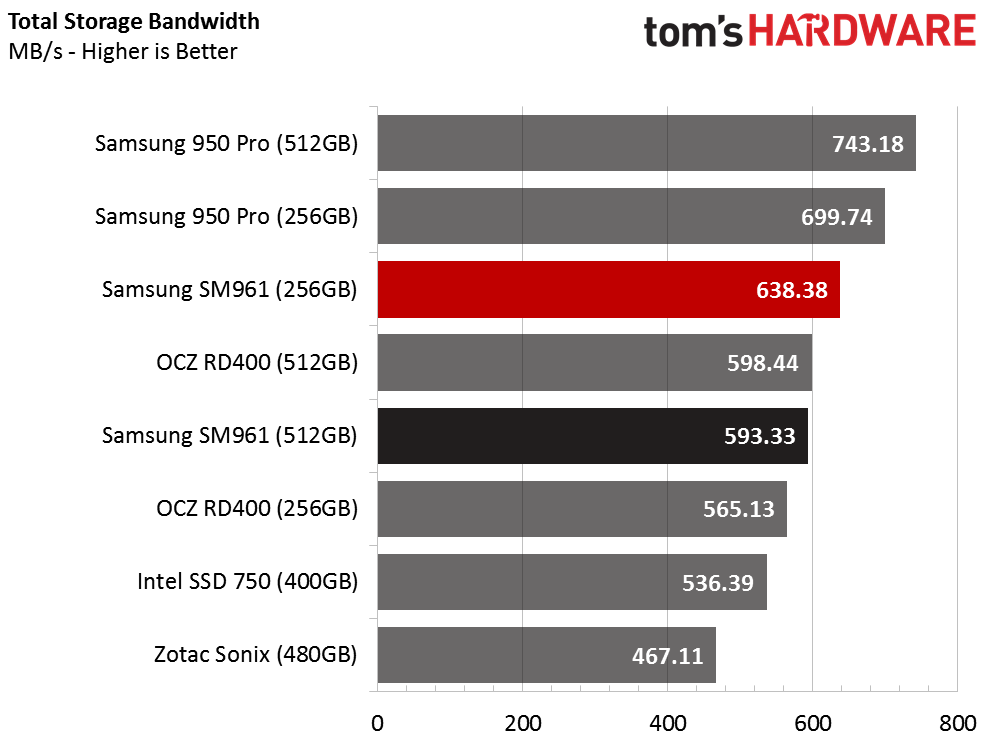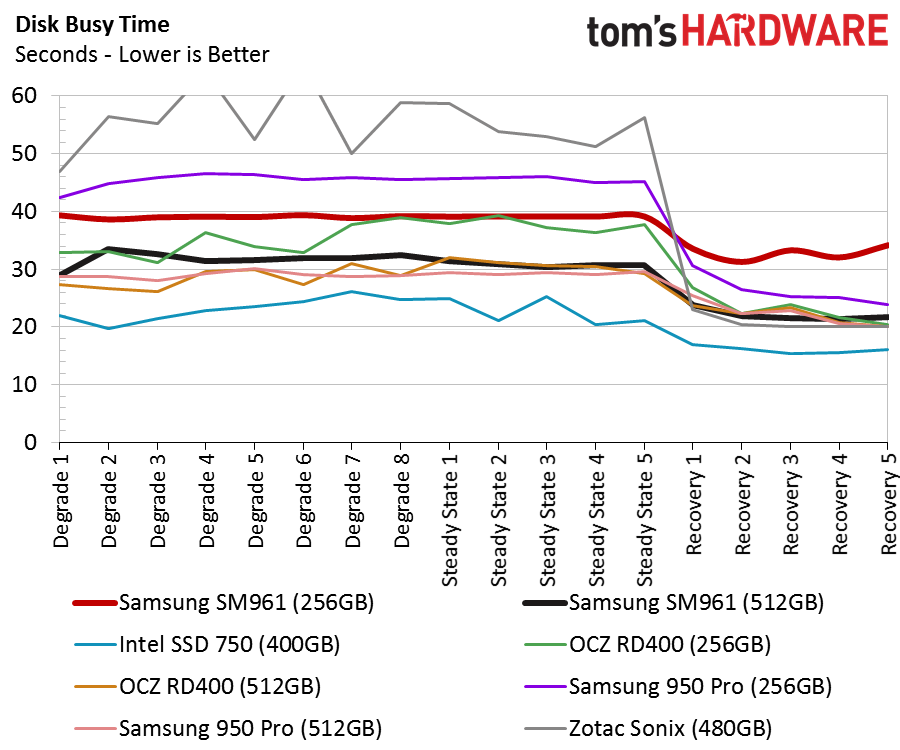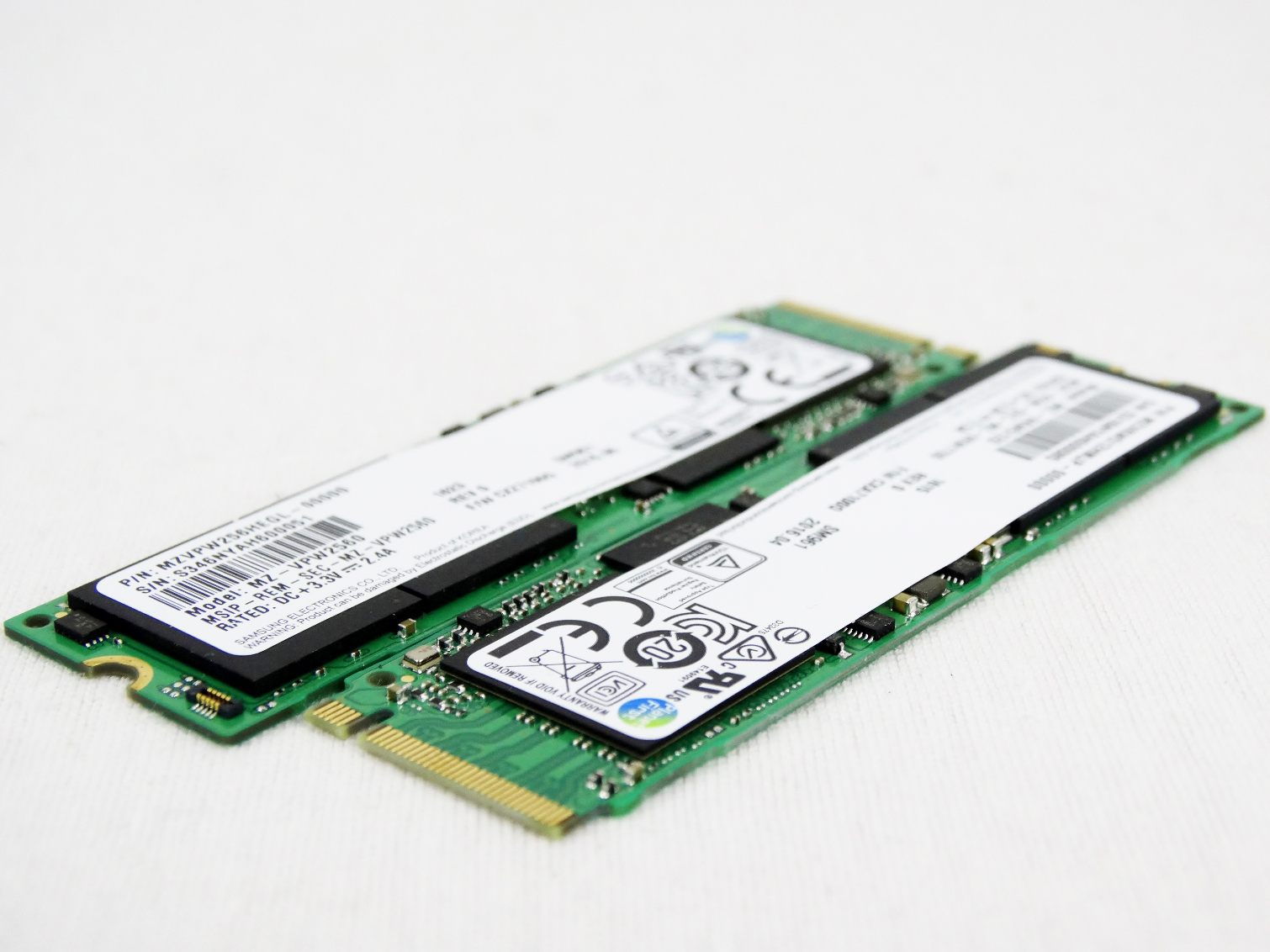Samsung SM961 512GB & 256GB SSD Review
Why you can trust Tom's Hardware
Software Performance & Conclusion
PCMark 8 Real-World Software Performance
For details on our real-world software performance testing, please click here.
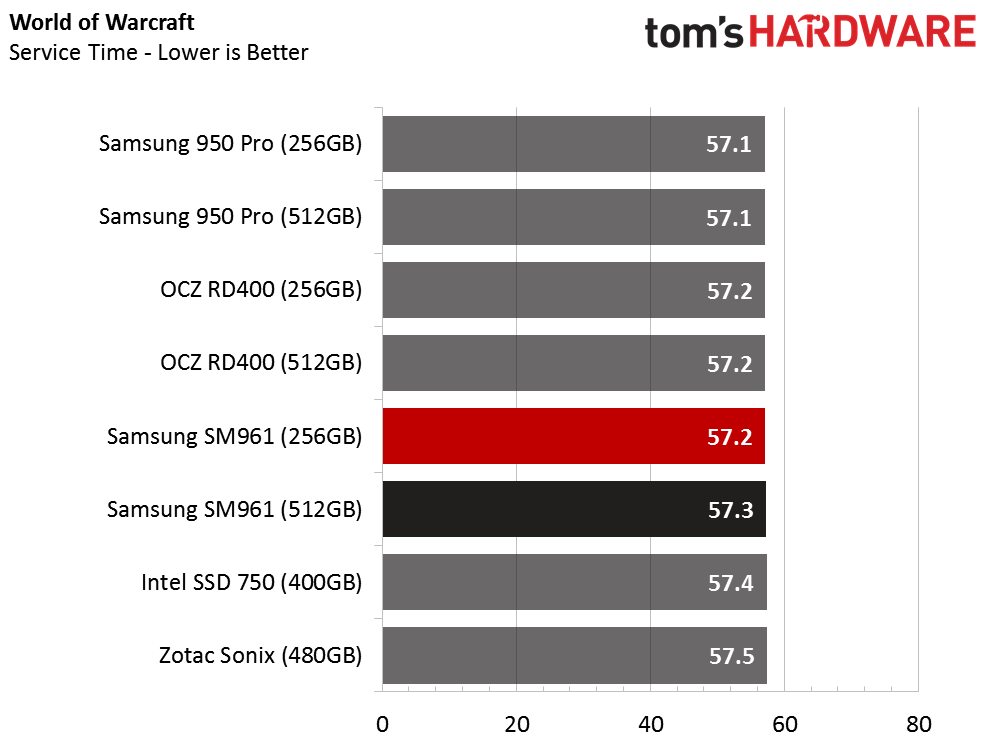
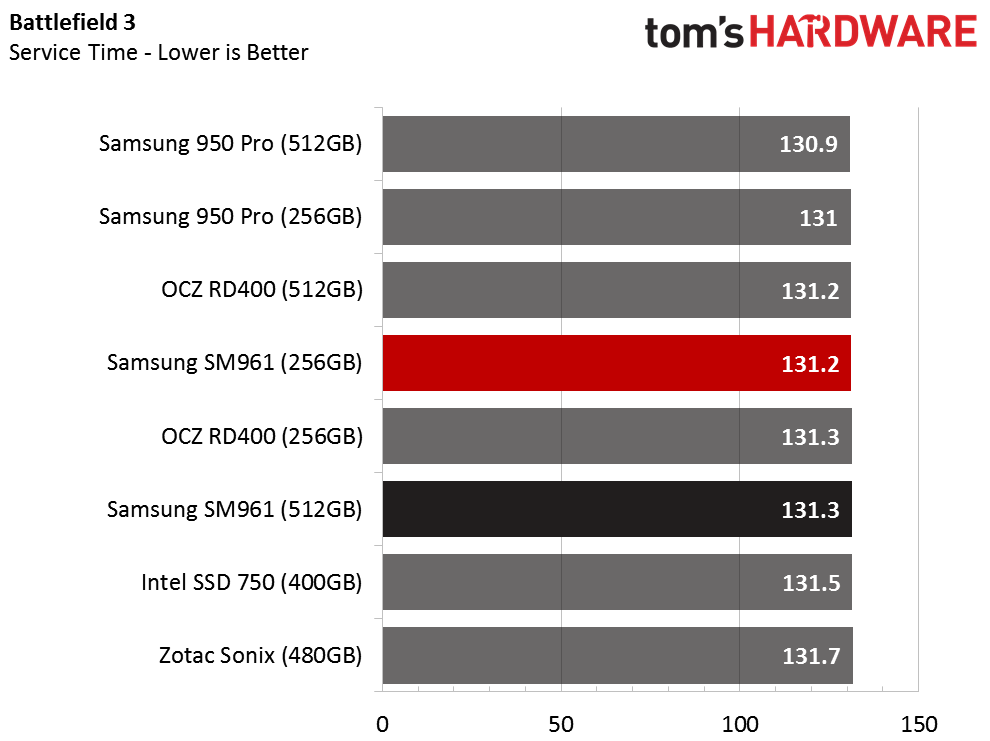
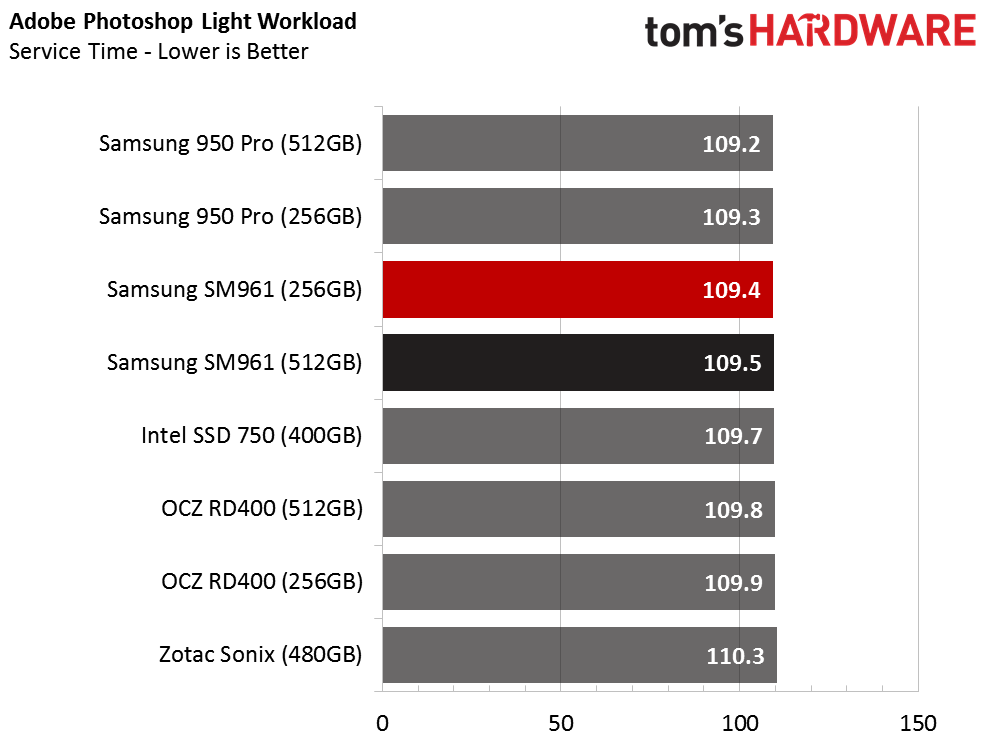
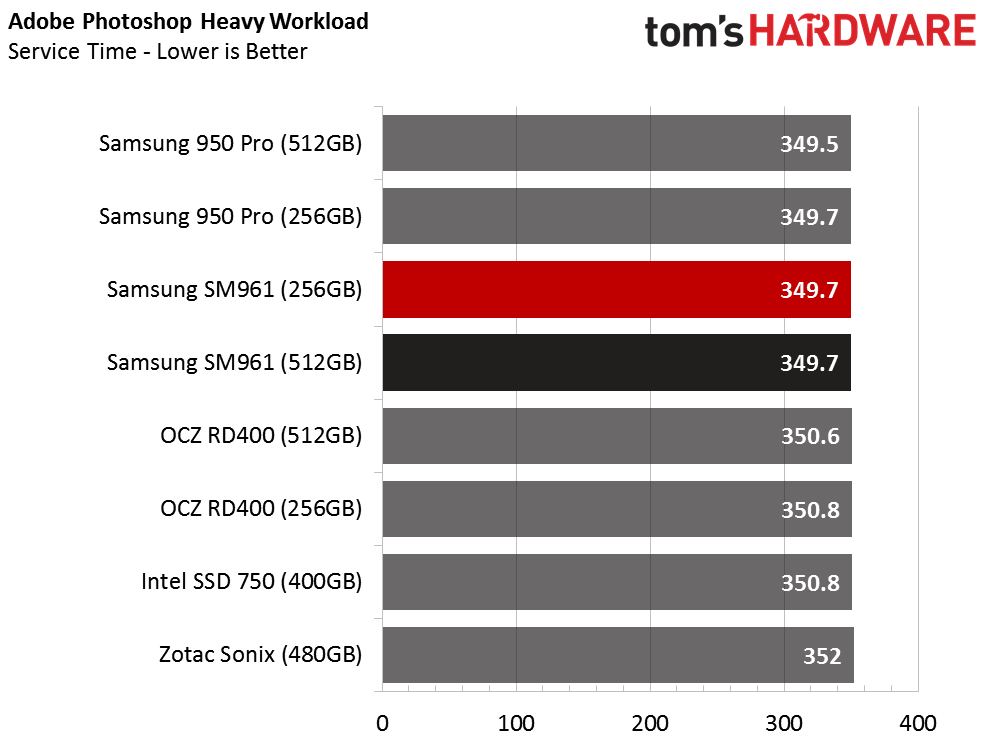
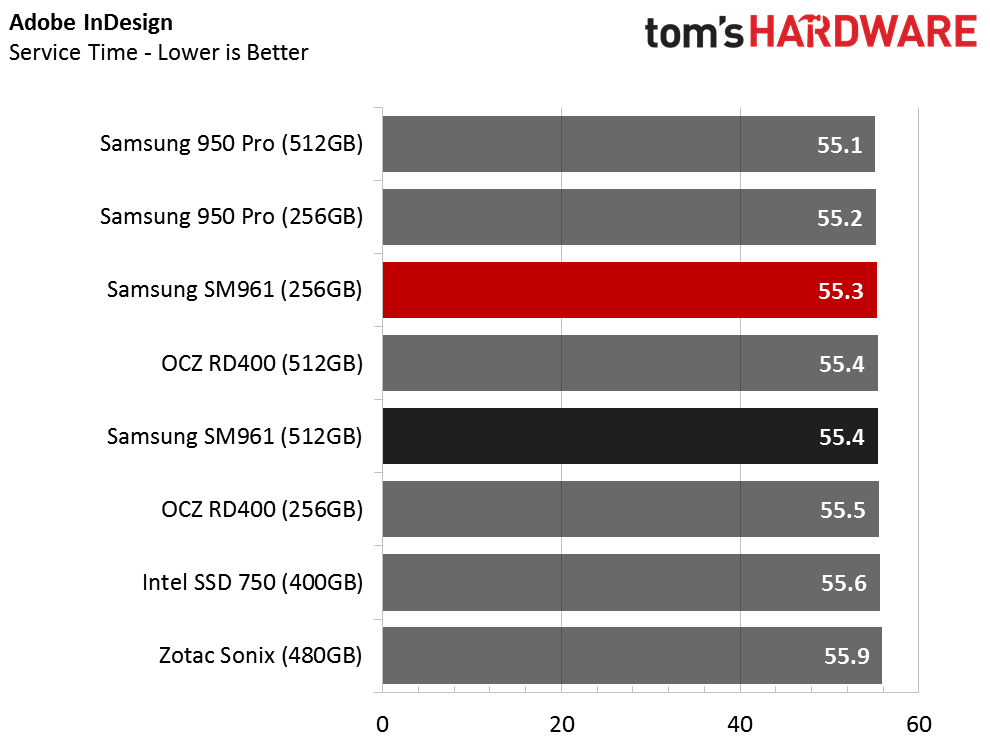
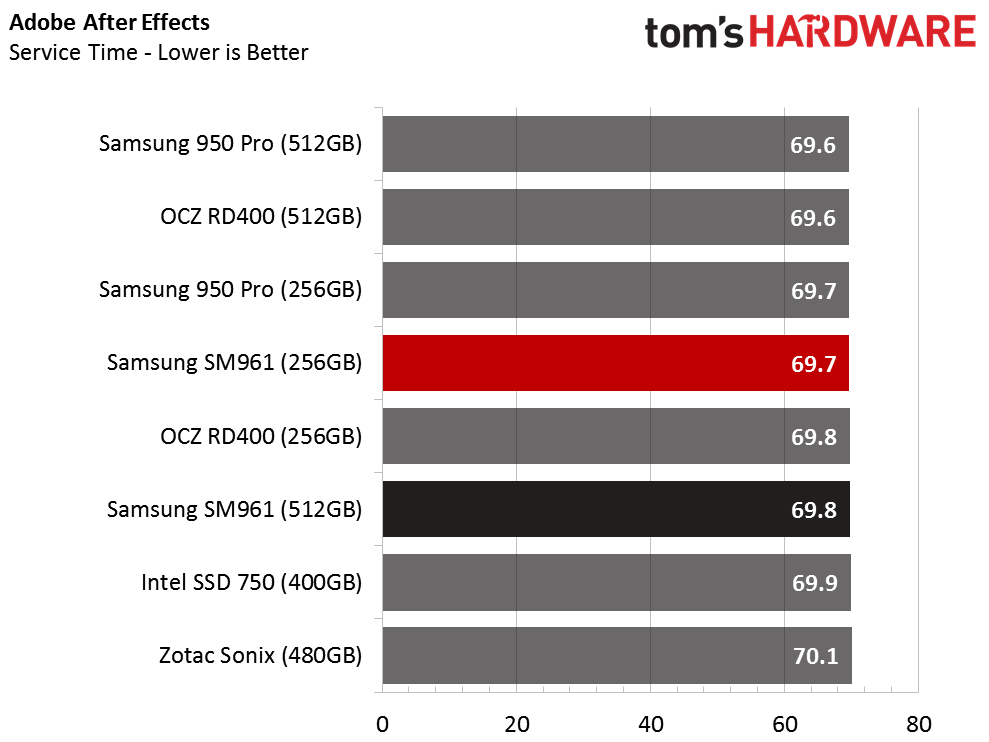
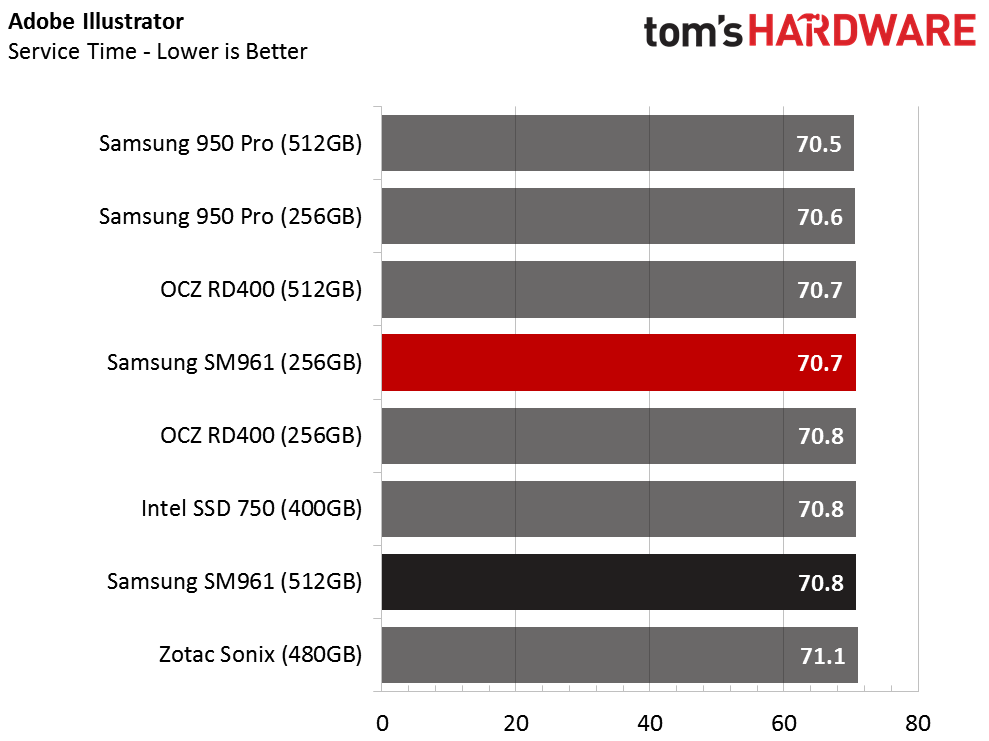
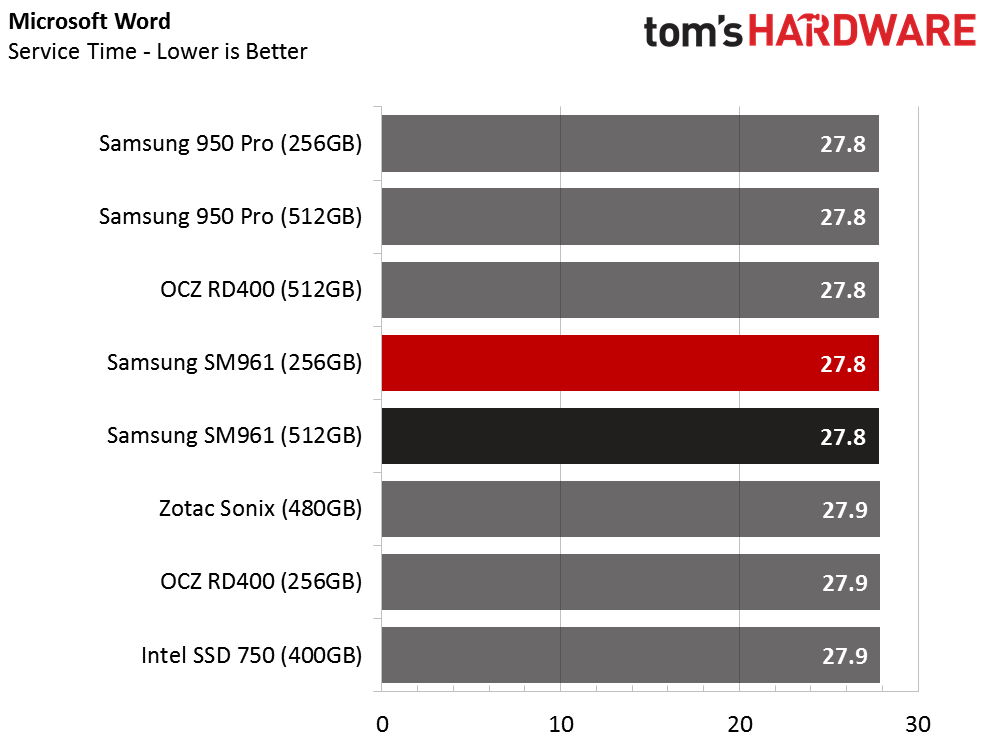
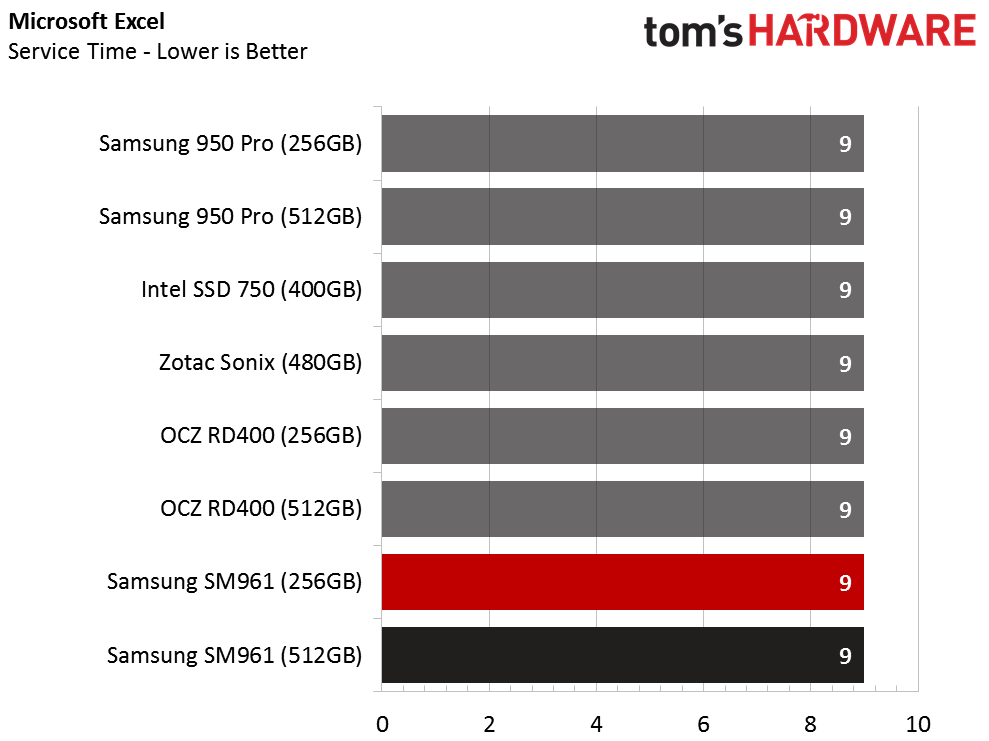
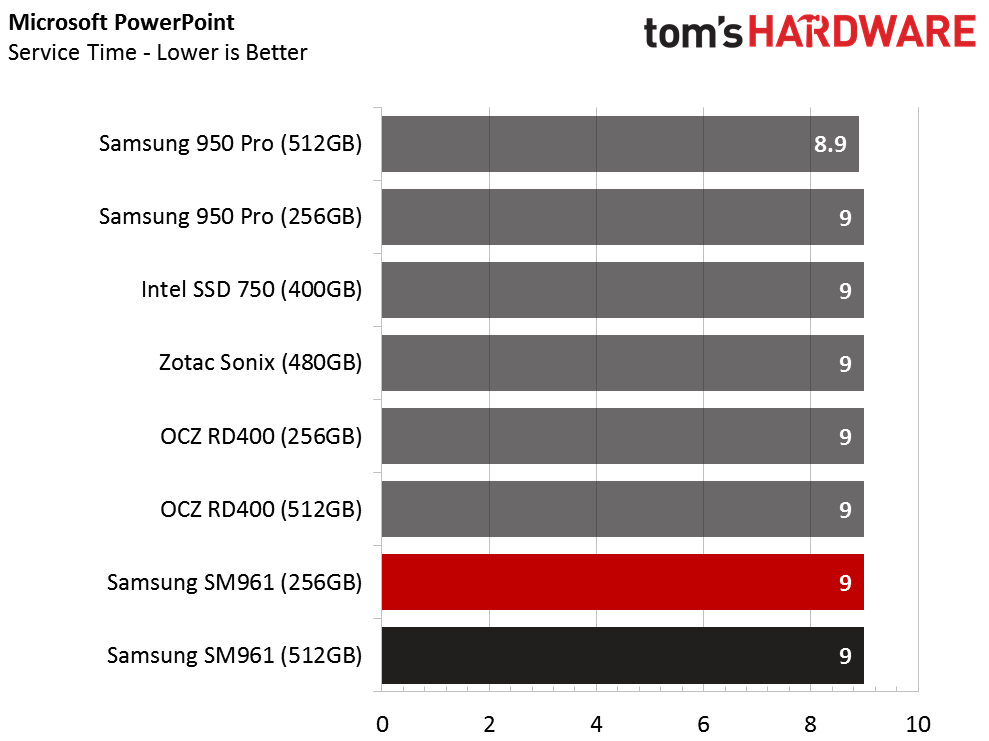
The Samsung SM961 didn't dominate our real-world software performance tests as you might expect. We tested the drives using the Microsoft NVMe driver built into Windows 8.1. The 950 Pro ships with a dedicated NVMe driver from Samsung that increases performance, but the driver will not install with an SM961. We also tried the HP NVMe INF driver for Samsung's other NVMe products and observed only a modest performance increase with the SM961 1TB.
The SM961 SSDs are in striking distance of overtaking the 950 Pro products but desperately need an updated driver to do so. We reached out to Samsung Semiconductor about an NVMe driver for the Polaris controller but were told to use the Microsoft driver for now. In time, we should see a driver tuned specifically for the SM961. The only products we've seen ship with this SSD are from Lenovo, but the P70 and X1 Carbon Gen 4 do not list SM961 drivers in the support section. We will keep an eye out and report back with new test results once a new driver emerges.
PCMark 8 Advanced Workload Performance
To learn how we test advanced workload performance, please click here.
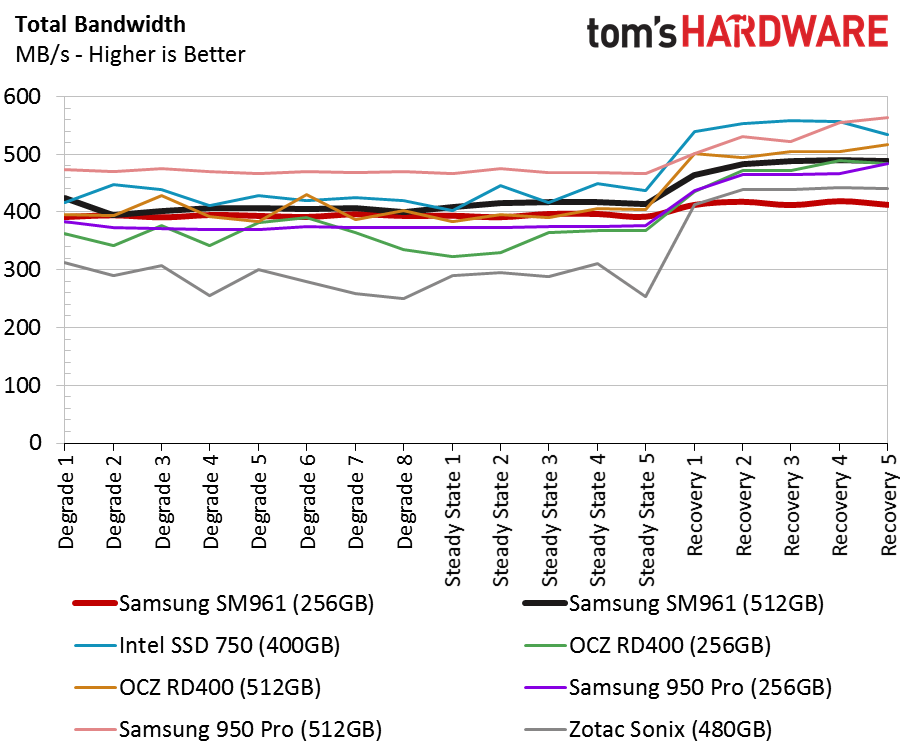
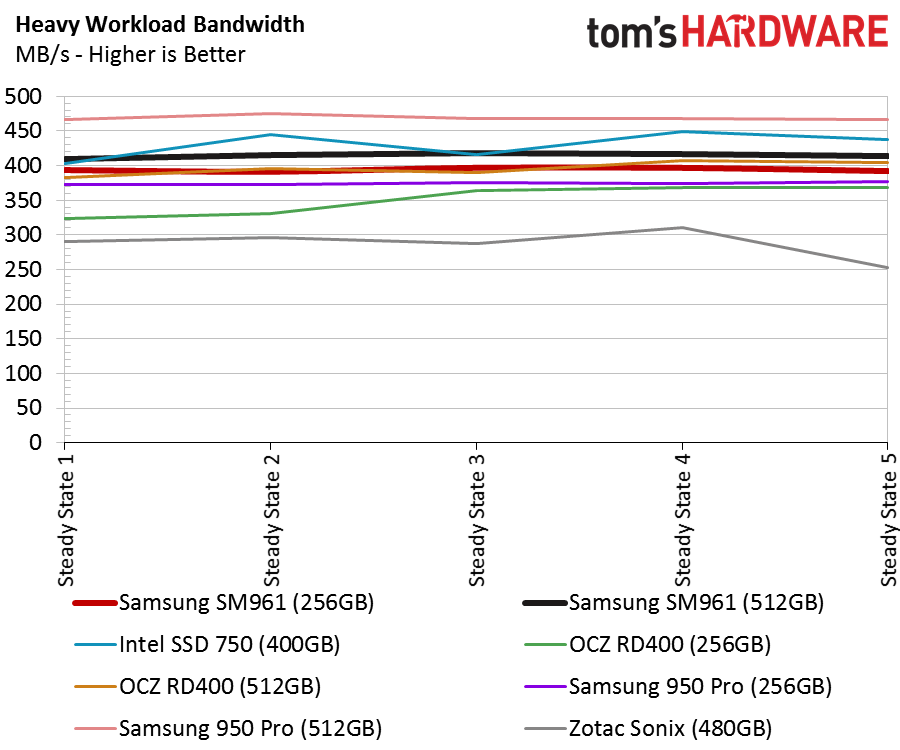
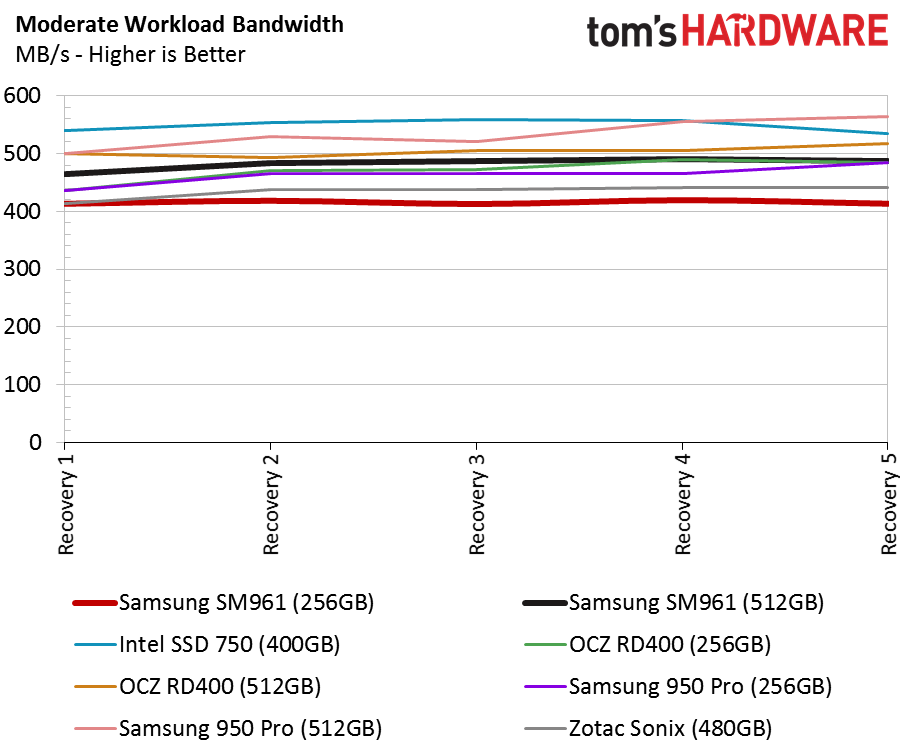
The SM961 performance issues in real-world software applications carry over to the heavy and moderate workload tests. Both of the SM961 SSDs need more time than our test allows to recover and regain peak performance. A small amount of overprovisioning would improve performance with the new 48-layer NAND in these low capacity SSDs. Users can manually assign spare area during the format process, but lose some capacity as a trade off.
Access Time
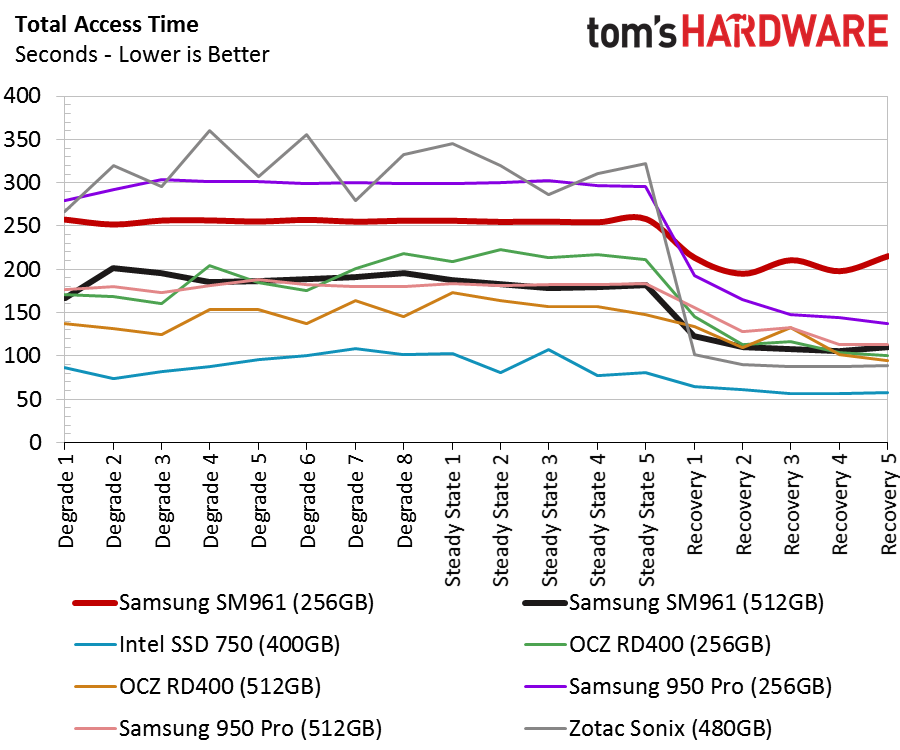
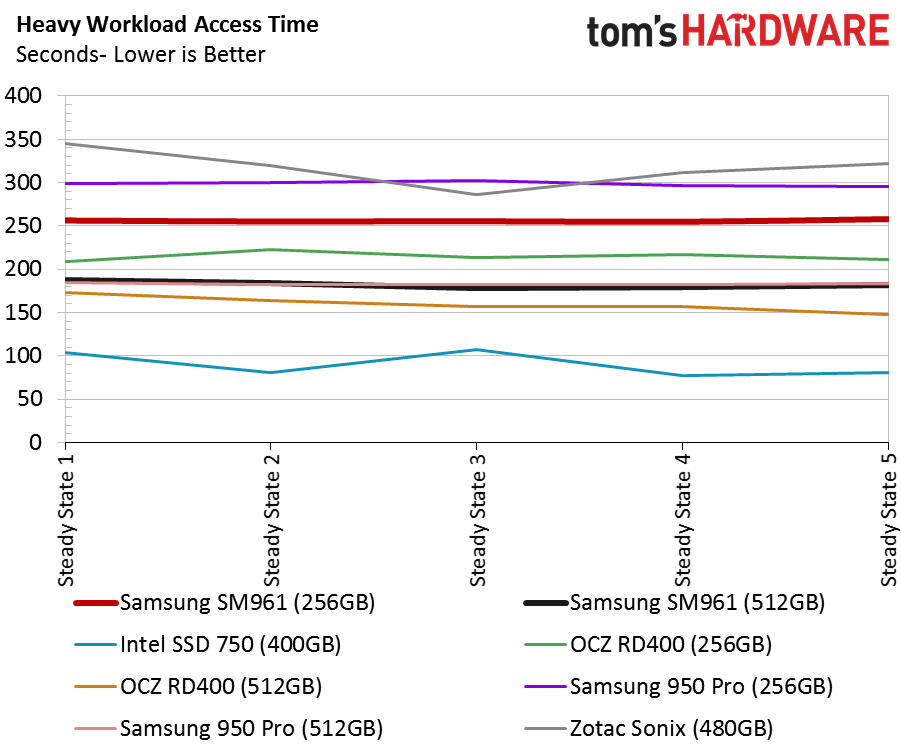
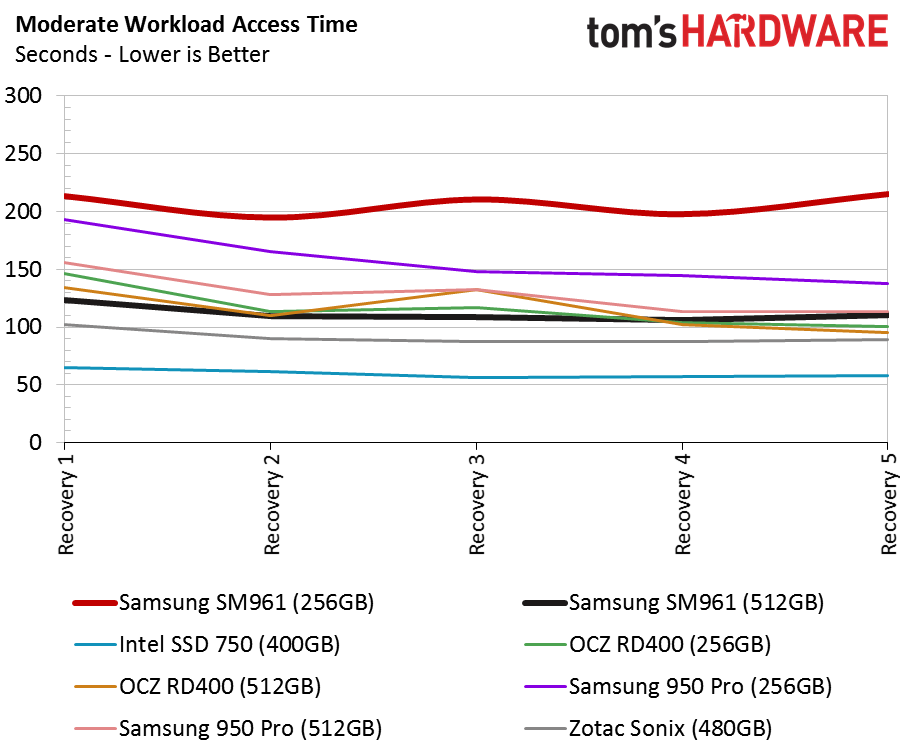
The Intel SSD 750 leads this class of products in latency, but it also utilizes the largest overprovisioned space (a full 112GB). The SM961 512GB slightly outperforms the 950 Pro 512GB in many of the recovery tests, but the SM961 256GB lacks enough parallel read and write performance to overtake the 950 Pro 256GB.
Disk Busy Time
Disk busy time is a measurement that most readers may not be familiar with. The SSD moves into action when an I/O request comes into the drive. The SSD completes the task as quickly as possible, and then falls back into an idle state. The "busy time" is the duration of time from the request to the completion (when at least 1 I/O is outstanding). SSDs generally use less power when they can complete the task and fall back into idle state quickly.
Get Tom's Hardware's best news and in-depth reviews, straight to your inbox.
The SM961 and 950 Pro 512GB produce nearly identical results in this test. The SM961 256GB performs slightly better under heavy workloads compared to the 950 Pro in the same capacity, but it loses the advantage as the workload lightens.
Notebook Battery Life
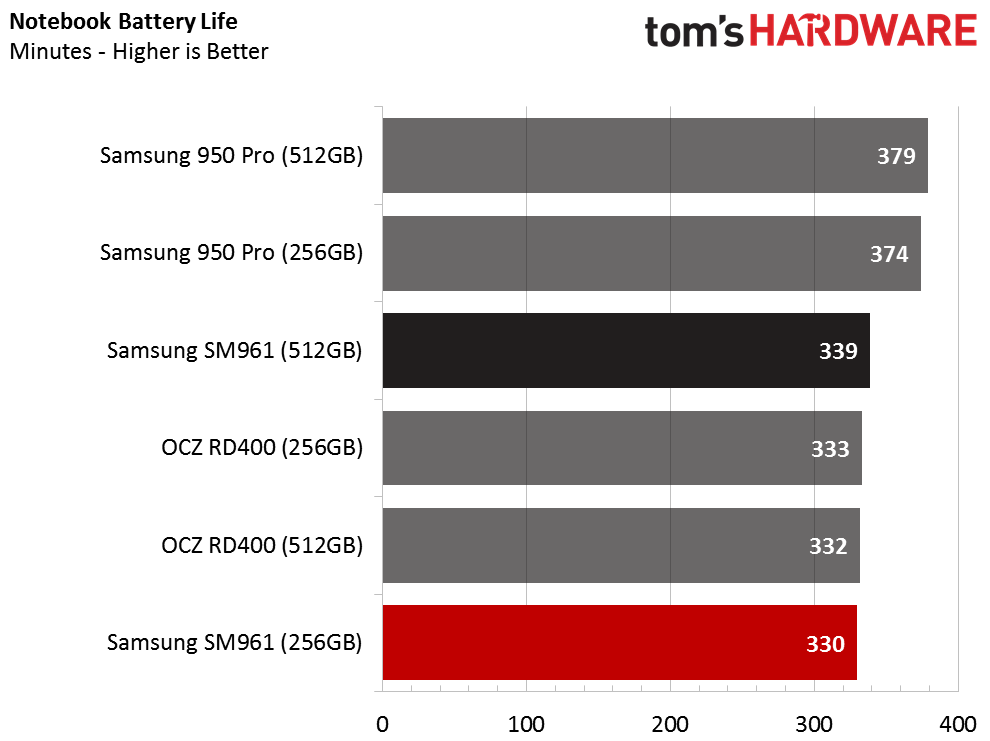
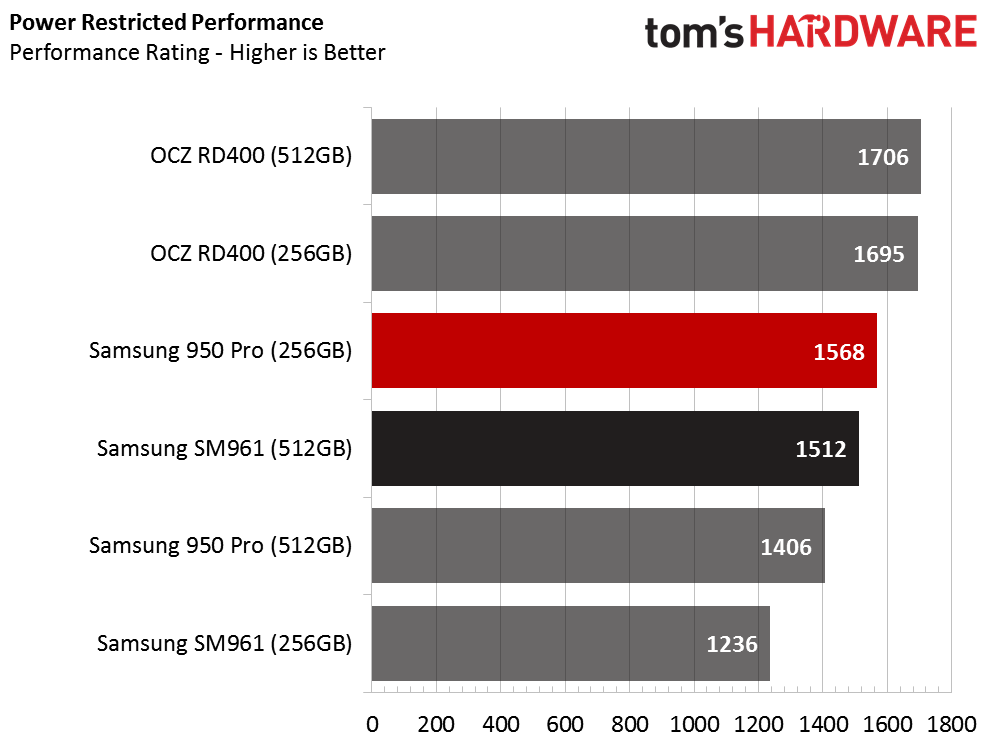
Our new Lenovo Y700 notebooks allow us to test NVMe SSDs with Bapco's MobileMark 2014. Many of the M.2 SSDs deliver approximately 330 minutes of battery life while running the Office Applications test. The Samsung 950 Pro NVMe SSDs deliver roughly 40 more minutes of battery time than the other SSDs and score a better performance rating than the SM961's during the test.
Conclusion
If you already own a 950 Pro, or it's SM951 cousin, I don't see any reason to purchase a new SM961 unless you are looking for an SSD with a larger capacity. Until this product, the lowest priced 1TB NVMe SSD was $770. Even holding your nose doesn't make that taste good. Samsung's aggressive price points for the SM961 certainly makes an upgrade to 1TB more palatable.
The two smaller SM961 SSDs we tested today also lower the cost of entry. The SM961 256GB at less than $160 is an outright bargain that competes with premium SATA SSDs. Price parity with SATA 6Gbps products is a good way to spur NVMe sales. The same can be said about the SM961 512GB, but we are still talking about $280 (a little lower now).
The two SM961 SSDs we tested today don't bring large performance gains to users, and the 950 Pro SSDs deliver slightly higher performance in some real-world applications. The performance difference is relatively small and not enough to cover the price gap. I would hate to pin hopes on firmware upgrades since most will come from unauthorized sources due to the SM961's OEM status. We feel the SM961 has more to offer in the future from either a firmware flash or an updated NVMe driver.
In either case, the pricing speaks for itself, and as it sits now, the SM961 delivers the best bang for your buck in high-performance computing.
MORE: Best SSDs
MORE: How We Test HDDs And SSDs
MORE: All Storage Content
Follow us on Facebook, Google+, RSS, Twitter and YouTube.

Chris Ramseyer was a senior contributing editor for Tom's Hardware. He tested and reviewed consumer storage.
-
oczdude8 Can you please make those line graphs more readable? Its really hard to distinguish between the 950 pro and the ocz drive. I suggest using dashes or dots as well as colours instead of using two very similar coloursReply -
velocityg4 I don't get why Samsung would make these an OEM exclusive. It seems to me that aftermarket enthusiasts would be the major purchasers.Reply
What OEM would even use these? Most OEM SSD options are low grade entry level SSD. Apple is the best I've seen, using the Samsung SM951 in a proprietary form factor. The highest I've seen any other OEM use is the Samsung PM951 (Dell XPS laptop, MS Surface, Lenovo Yoga 900).
Do these just show up in high end workstations or servers? So far the only manufacturer I'm aware of whom would likely include these would be Apple. If they ever get off their butts and update their premium priced yet obsolete hardware.
As manufacturers are hesitant to boast in their specs what SSD they use. How would you even know without purchasing the computer or finding a teardown that the SM961 is in there? -
CRamseyer HP, Dell, and Lenovo all sold products with the SM951. We purchased the Lenovo X1 Carbon Gen 3 just to the the first drive available for review. HP sent over a Z Turbo (SM951+workstation adapter) and the new quad version that puts 4 in a single PCIe device. Dell used the drive in one of the high end ultralight notebooks.Reply
